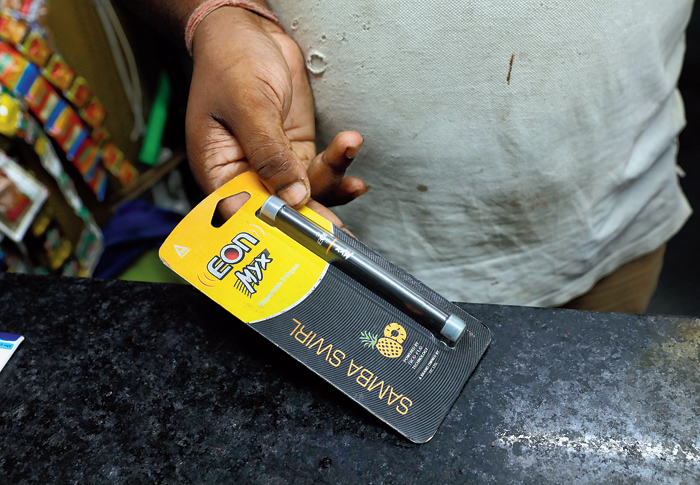India has banned the sale of electronic cigarettes and warned of an “epidemic” among young people, in the latest and potentially biggest move globally against vaping over growing health concerns.
The ban will apply to the manufacture, import, sale, advertisement and distribution of e-cigarettes. It won’t apply to the use of such devices, Vikas Sheel, a senior official at the Union health ministry, told Reuters. “Over a period of time, people will not get their (vape) refills, so they will become responsible,” he added.
Vaping usually involves inhaling a vapour formed from heating up a liquid containing nicotine.
The government expects the ban order to be challenged in court, but was prepared to defend its decision, Sheel added.
The ban cuts off a huge future market from e-cigarette makers at a time when the number of people smoking worldwide is declining. It could dash the expansion plans of companies such as Juul Labs and Philip Morris International in the country.
“These novel products come with attractive appearances and multiple flavours and their use has increased exponentially and acquired epidemic proportions in developed countries, especially among youth and children,” the Union health ministry said.
The Indian prohibition will be imposed through an ordinance and will include jail terms of up to three years for offenders. The ban will impose a jail term of up to one year and a fine of Rs 1 lakh for first-time offenders. A repeat violation would attract a jail term of up to three years and a penalty of up to Rs 5 lakh.
The US last week announced plans to remove flavoured e-cigarettes from stores, warning that sweet flavours had drawn millions of children into nicotine addiction.
India has 106 million adult smokers, second only to China in the world, making it a lucrative market for companies making vaping products such as US-based Juul and Philip Morris, which manufactures a heat-not-burn tobacco device.
The ban was announced by finance minister Nirmala Sitharaman at a news conference, where she showed various types of products to the media, including a Juul vaping device, which resembles a USB flash drive.
Juul had plans to launch its e-cigarette in India and has hired several senior executives in recent months. Philip Morris also had plans to launch its heat-not-burn smoking device in India.
India’s vapour-products market was valued at $57 million in 2018, according to data from Euromonitor International.
Advocates for e-cigarettes say vaping is far less harmful than smoking tobacco. But many tobacco-control activists say the devices could lead to nicotine addiction and push people towards consuming tobacco.
More than 900,000 people die each year because of tobacco-related illnesses in India.
The Association of Vapers India, which represents e-cigarette users, attacked the government’s decision, saying it would deprive millions of smokers of a safer solution to cut back on smoking.











